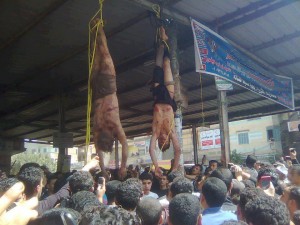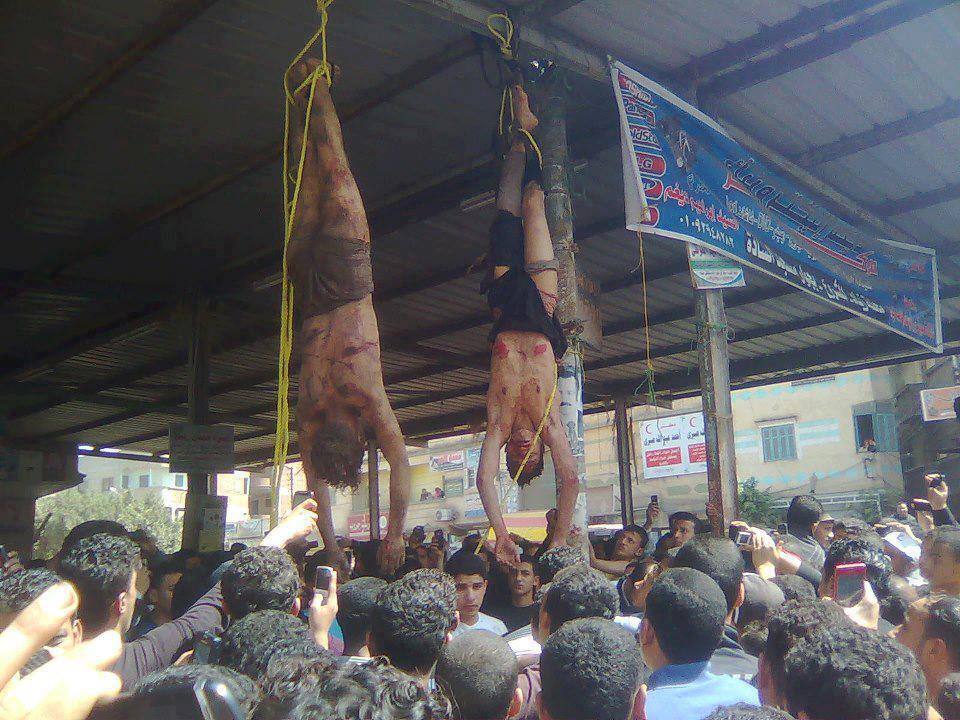
(Photo Public Domain)
By Rawan Ezzat
Egyptians taking the law into their own hands is an increasingly common phenomenon as perceptions of insecurity continue to increase.
In March, villagers in Shubra Malkan in Gharbeya killed two men who had allegedly tried to rob a lorry. The men were beaten, stabbed and slashed to death before the mob hung their dead bodies from poles.
Former Minister of Justice Ahmed Mekki said the incident indicated the “death of the state,” and that a government unable to provide security was an “unjust” one.
Reports of rising crime are well-documented. According to the Financial Times, reported armed robberies increased from 233 in 2010 to 2,807 in 2012, while reports of home invasions rose from 7,368 to 11,699. In the absence of security and policemen, citizens are resorting to vigilante justice.
This has even been encouraged by the prosecutor general’s office, which in March released a statement encouraging Egyptians to detain suspected criminals in accordance with a 1950s law that permits citizen arrests.
Issued in the context of widespread public perception of increasing insecurity, the directive was followed by more violent mob action.
In Al-Menofeya in April, a mob tortured to death a mother and her three sons after they were accused of theft. The four victims were tied to a tree and mutilated with knives. None of the perpetrators have been prosecuted.
Ahmed Hassan, a citizen from the village, told Daily News Egypt: “This is now our duty to prevent crime in the absence of police and to protect our lives.”
While several of these incidents attracted significant media attention, other murders have not had such high profiles. According to state-owned Al-Ahram, a village near the city of Belbeies in Zagazig has experienced high numbers of mob killings, in response to allegations of kidnapping, theft and rape. In one instance, 31-year-old Mustafa Sabrywas beaten and stabbed to death after he was accused of theft in March.
Leading opposition figure Mohamed ElBaradei blamed President Mohamed Morsi and his government, saying: “An administration that loses its responsibility, credibility and competence makes us lose our humanity.”
President Morsi addressed the Ministry of Interior (MOI) in his speech to the country on 26 June. He said police performance is improving despite individual violations by some vigilantes, adding: “We can never forget police martyrs who die on duty every day.”
According to Morsi, the spread of violence and the blocking of roads and railways were a challenge to the government and he asked the MOI to establish a unit to combat crime.
A website launched in June, called Morsi’s First Year, showcases statistics relating to President Morsi’s accomplishments. According to the website, police under Morsi’s rule made 342 arrests for 2435 reported offences. In addition, police made arrests in 258 kidnapping cases out of 472 reported incidents.


